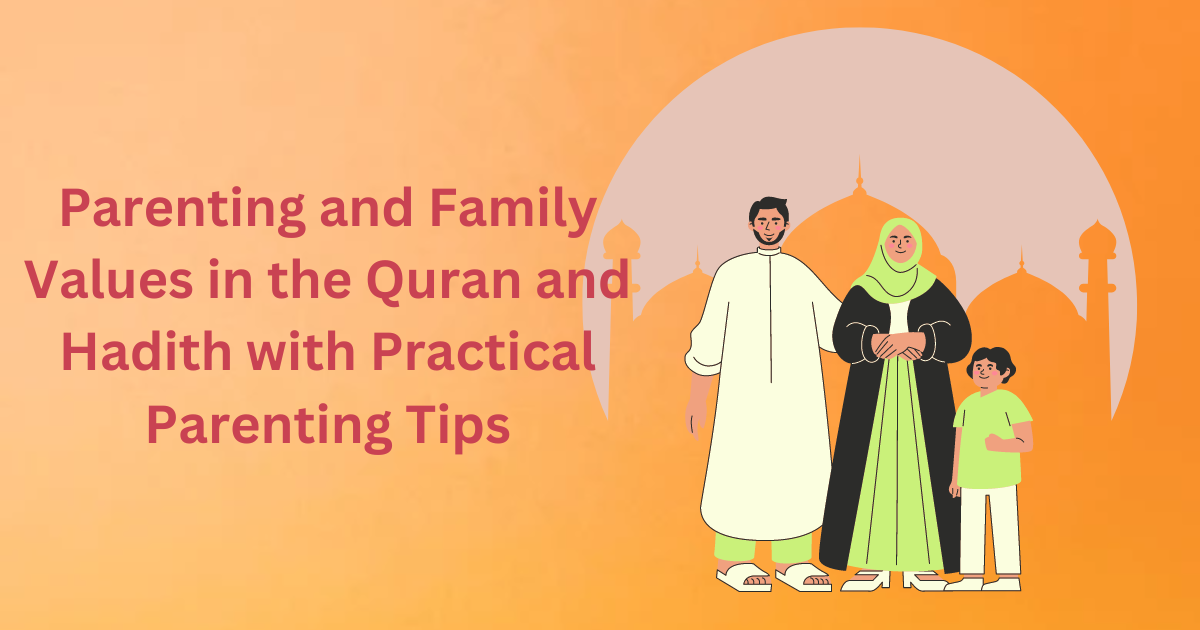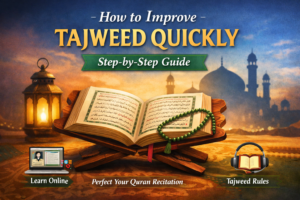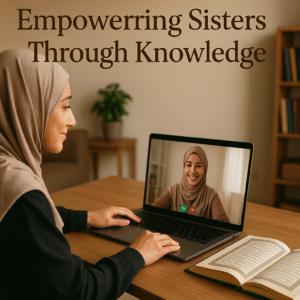In Islam, parenting and family values paints the main lines of the relationship between parents and children which is sacred, with the Quran and Hadith emphasizing respect, kindness, and obedience towards parents. Parenting is viewed as a moral and spiritual responsibility, where parents guide their children’s faith and instill compassion.
The family unit is essential in raising the next generation, contributing to individual righteousness and the moral strength of the community.
Parenting and family values are a group of values that lead to a successful society since the family is considered the building block of society. Without these values, the family will lose its role.
As a Muslim, you should know Parenting and Family Values. In other words, we must protect our families and work toward making the world a better, happier place. If you apply these family values, Allah will be pleased with you.
Table of Contents
Obedience to parents in the Quran and Hadith:
Obedience to parents in the Quran and Hadith is an obvious topic since many Ayat in the Quran and many prophetic hadiths tell us about the importance of obedience to parents.
A- Obedience to parents in the Quran:
The Quran stipulates the rights of parents. These rights generally are: honoring parents, obeying them, and being kind to them. Some examples of Ayat discussing parenting are:
1. Surah Al-Isra
Allah says in this Ayat that children should respect their parents and this comes directly after the monotheism of Allah. Then Allah explains that you should not say any bad words even if you are angry.
“Your Lord has decreed that you worship none but Him, and do good to parents. If any one of them or both of them reach old age, do not say to them: uff (a word or expression of anger or contempt) and do not scold them, and address them with respectful words”
وَقَضَىٰ رَبُّكَ أَلَّا تَعْبُدُوا إِلَّا إِيَّاهُ وَبِالْوَالِدَيْنِ إِحْسَانًا ۚ إِمَّا يَبْلُغَنَّ عِندَكَ الْكِبَرَ أَحَدُهُمَا أَوْ كِلَاهُمَا فَلَا تَقُل لَّهُمَا أُفٍّ وَلَا تَنْهَرْهُمَا وَقُل لَّهُمَا قَوْلًا كَرِيمًا (23)
2. Surah Al Anaam
In this Ayah Allah tells us about some commands we should do including Kindness to parents and others. You can notice that “kindness to parents” was mentioned in the first due to its importance.
“Come, I will recite what your Lord has prohibited to you. [He commands] that you not associate anything with Him, and to parents, good treatment, and do not kill your children out of poverty; We will provide for you and them. And do not approach immoralities – what is apparent of them and what is concealed. And do not kill the soul which Allah has forbidden [to be killed] except by [legal] right. This has He instructed you that you may use reason.”
وقوله سبحانه: «قُلْ تَعَالَوْا أَتْلُ مَا حَرَّمَ رَبُّكُمْ عَلَيْكُمْ ۖ أَلَّا تُشْرِكُوا بِهِ شَيْئًا ۖ وَبِالْوَالِدَيْنِ إِحْسَانًا ۖ وَلَا تَقْتُلُوا أَوْلَادَكُم مِّنْ إِمْلَاقٍ ۖ نَّحْنُ نَرْزُقُكُمْ وَإِيَّاهُمْ ۖ وَلَا تَقْرَبُوا الْفَوَاحِشَ مَا ظَهَرَ مِنْهَا وَمَا بَطَنَ ۖ وَلَا تَقْتُلُوا النَّفْسَ الَّتِي حَرَّمَ اللَّهُ إِلَّا بِالْحَقِّ ۚ ذَٰلِكُمْ وَصَّاكُم بِهِ لَعَلَّكُمْ تَعْقِلُونَ» [الأنعام:151].
3. Surah Luqman
The following Ayah explains how to treat unbelieving parents. In case they pressure you to disobey Allah, you should be kind to them without obeying them. You can also see that Allah reminds us of the mothers’ role with children.
“And We have commanded people to ˹honour˺ their parents. Their mothers bore them through hardship upon hardship, and their weaning takes two years. So be grateful to Me and your parents. To Me is the final return.14
But if they pressure you to associate with Me what you have no knowledge of, do not obey them. Still keep their company in this world courteously, and follow the way of those who turn to Me ˹in devotion˺. Then to Me you will ˹all˺ return, and then I will inform you of what you used to do.”15
قال الله -تعالى-: (وَوَصَّيْنَا الْإِنسَانَ بِوَالِدَيْهِ حَمَلَتْهُ أُمُّهُ وَهْنًا عَلَىٰ وَهْنٍ وَفِصَالُهُ فِي عَامَيْنِ أَنِ اشْكُرْ لِي وَلِوَالِدَيْكَ إِلَيَ الْمَصِيرُ* وَإِن جَاهَدَاكَ عَلَىٰ أَن تُشْرِكَ بِي مَا لَيْسَ لَكَ بِهِ عِلْمٌ فَلَا تُطِعْهُمَا وَصَاحِبْهُمَا فِي الدُّنْيَا مَعْرُوفًا وَاتَّبِعْ سَبِيلَ مَنْ أَنَابَ إِلَيَّ ثُمَّ إِلَيَّ مَرْجِعُكُمْ فَأُنَبِّئُكُم بِمَا كُنتُمْ تَعْمَلُونَ).
B- Obedience to parents in the Hadith:
The Hadith also emphasizes the duty of children to respect, obey, and look after their parents especially if they are old. Here are 3 examples reflecting the importance of obedience to parents:
1. Hadith commands us to exert ourselves on our parents’ behalf:
Jihad, while being the word for fighting against infidels, also means to strive or to exert oneself in general. The man wished to take part in jihad, and when the Prophet heard that his parents were still alive he said fa-fihima fa-jahid (exert yourself on their behalf.)
Abdallah bin Amro said that a man came to Allah’s Messenger and asked his permission to take part in jihad. He asked him if his parents were still alive, and when he replied that they were, he told him to exert himself on their behalf.
حَدَّثَنَا آدَمُ، حَدَّثَنَا شُعْبَةُ، حَدَّثَنَا حَبِيبُ بْنُ أَبِي ثَابِتٍ، قَالَ سَمِعْتُ أَبَا الْعَبَّاسِ الشَّاعِرَ ـ وَكَانَ لاَ يُتَّهَمُ فِي حَدِيثِهِ ـ قَالَ سَمِعْتُ عَبْدَ اللَّهِ بْنَ عَمْرٍو ـ رضى الله عنهما ـ يَقُولُ جَاءَ رَجُلٌ إِلَى النَّبِيِّ صلى الله عليه وسلم فَاسْتَأْذَنَهُ فِي الْجِهَادِ فَقَالَ ” أَحَىٌّ وَالِدَاكَ ”. قَالَ نَعَمْ. قَالَ ” فَفِيهِمَا فَجَاهِدْ ”.
2. The mother’s preference over the father:
Islam commands us to honor both parents and obey them in what is right, because they have great favor over their children. This Hadith explains the preference of the mother over the father due to her role in her children’s lives during pregnancy, lactation, and looking after them.
Abu Hurairah (May Allah be pleased with him) reported:
A person came to Messenger of Allah (ﷺ) and asked, “Who among people is most deserving of my fine treatment?” He (ﷺ) said, “Your mother”. He again asked, ”Who next?” “Your mother”, the Prophet (ﷺ) replied again. He asked, “Who next?” He (the Prophet (ﷺ)) said again, “Your mother.” He again asked, “Then who?” Thereupon he (ﷺ) said,” Then your father.”
In another narration: “O Messenger of Allah! Who is most deserving of my fine treatment?” He (ﷺ) said, “Your mother, then your mother, then your mother, then your father, then your nearest, then nearest” [Al-Bukhari and Muslim].
وعن أبي هريرة رضي الله عنه قال: جاء رجل إلى رسول الله صلى الله عليه وسلم فقال: يا رسول الله من أحق الناس بحسن صحابتي؟ قال: ” أمك” قال: ثم من؟ قال: ” أمك” قال: ثم من؟ قال: ”أمك” قال: ثم من؟ قال: ” أبوك” ((متفق عليه)).
وفي رواية: يارسول الله من أحق بحسن الصحبة؟ قال: ” أمك، ثم أمك، ثم أمك، ثم أباك، ثم أدناك أدناك”.
3. The importance of Kindness towards parents in Islam:
This Hadith shows us the high importance of kindness toward parents since it comes after the prayer. Honoring parents in Islam is an obligation, not a Sunnah.
I asked the Messenger of Allah (ﷺ): “Which action is dearest to Allah?” He (ﷺ) replied, “Performing As-Salat (the prayer) at its earliest fixed time.” I asked, “What is next (in goodness)?” He (ﷺ) said, “Kindness towards parents.” I asked, “What is next (in goodness)?” He (ﷺ) said, “To participate in Jihad in the Cause of Allah.”
عن ابن مسعود، رضي الله عنه قال: قلت يا رسول الله أي العمل أحب إلى الله تعالى؟ قال: ”الصلاة على وقتها” قلت: ثم أي؟ قال: ”بر الوالدين” قلت ثم أي: قال: ”الجهاد في سبيل الله” ((متفق عليه))
What is Parenting in Islam?
Parenting in Islam is a core principle that is deeply rooted in the Quran and the Sunnah. It means that parents should raise their children on good ethical behavior and help them to build a strong relationship with their creator. If parents do this, Children can be a positive part of their society when they grow up.
What Does the Quran Say about Parenting?
The Quran provides profound guidance on the role of parents, emphasizing the importance of nurturing, educating, and raising children with compassion, wisdom, and moral integrity. Here are some key aspects of parenting as emphasized in the Quran:
1. Guidance and Moral Education:
The Quran highlights the responsibility of parents to guide their children toward righteousness and faith. Parents are encouraged to teach their children the values of Islam, including belief in Allah, good conduct, and adherence to religious duties.
Surah Luqman (31:13-19)
يَـٰبُنَىَّ لَا تُشْرِكْ بِٱللَّهِ إِنَّ ٱلشِّرْكَ لَظُلْمٌ عَظِيمٌ وَوَصَّيْنَا ٱلْإِنسَـٰنَ بِوَٰلِدَيْهِ حَمَلَتْهُ أُمُّهُۥ وَهْنًا عَلَىٰ وَهْنٍۢ وَفِصَـٰلُهُۥ فِى عَامَيْنِ أَنِ ٱشْكُرْ لِى وَلِوَٰلِدَيْكَ إِلَىَّ ٱلْمَصِيرُ
“O my son, do not associate [anything] with Allah. Indeed, association [with Him] is great injustice.”
“And We have enjoined upon man [care] for his parents. His mother carried him, [increasing her] in weakness upon weakness, and his weaning is in two years. Be grateful to Me and to your parents; to Me is the [final] destination.”
2. Love and Compassion:
The Quran places a strong emphasis on the importance of love, mercy, and compassion in the parent-child relationship.
Surah Al-Isra (17:24)
وَٱخْفِضْ لَهُمَا جَنَاحَ ٱلذُّلِّ مِنَ ٱلرَّحْمَةِ وَقُل رَّبِّ ٱرْحَمْهُمَا كَمَا رَبَّيَانِى صَغِيرًۭا
“And lower to them the wing of humility out of mercy and say, ‘My Lord, have mercy upon them as they brought me up [when I was] small.'”
This verse reflects the tender and compassionate care that surrounds the bond between parents and their kids.
3. Providing for and Protecting Children:
Parents are responsible for providing for the physical, emotional, and spiritual needs of their children. This includes ensuring their well-being, safety, and education.
Surah At-Tahrim (66:6)
يَـٰٓأَيُّهَا ٱلَّذِينَ ءَامَنُوا۟ قُوٓا۟ أَنفُسَكُمْ وَأَهْلِيكُمْ نَارًۭا وَقُودُهَا ٱلنَّاسُ وَٱلْحِجَارَةُ
“O you who have believed, protect yourselves and your families from a Fire whose fuel is people and stones…”
This verse emphasizes the duty of parents to protect their families from harm, both in this life and the Hereafter, by guiding them on the right path.
4. Fairness and Justice:
The Quran advocates for fairness and justice in parenting, urging parents to treat their children equitably and to avoid favoritism.
Surah An-Nisa (4:9)
وَلْيَخْشَ ٱلَّذِينَ لَوْ تَرَكُوا۟ مِنْ خَلْفِهِمْ ذُرِّيَّةًۭ ضِعَـٰفًا خَافُوا۟ عَلَيْهِمْ فَلْيَتَّقُوا۟ ٱللَّهَ وَلْيَقُولُوا۟ قَوْلًۭا سَدِيدًا
“And let those [executors and guardians] fear [injustice] as if they [themselves] had left weak offspring behind and feared for them. So let them fear Allah and speak words of appropriate justice.”
5. Gratitude and Respect:
The Quran emphasizes the importance of teaching children to be grateful to their parents and to show them respect, as part of fulfilling their duties to Allah.
Surah Al-Ankabut (29:8)
وَوَصَّيْنَا ٱلْإِنسَـٰنَ بِوَٰلِدَيْهِ حُسْنًا
“And We have enjoined upon man goodness to parents…”
6. Spiritual Guidance:
Parents are also tasked with instilling a sense of spirituality and devotion in their children, guiding them to worship Allah and live a life that aligns with Islamic values.
Surah Ibrahim (14:40)
رَبِّ ٱجْعَلْنِى مُقِيمَ ٱلصَّلَوٰةِ وَمِن ذُرِّيَّتِىۚ رَبَّنَا وَتَقَبَّلْ دُعَآءِ
“My Lord, make me an establisher of prayer, and [many] from my descendants. Our Lord, and accept my supplication.”
The Importance of the Family in Islam:
The family is the principal brick of Islamic Society built based on a relationship between a male and a female through a legal contract between the husband and the woman’s guardian, and the family is entrusted with the responsibility of raising children, directing them to what is in their best interests, and preparing them to duties that they are assigned to in the various stages of their lives.
1. Ensuring the proper upbringing of the individual:
Allah commands us to reconstruct the earth and this can be done with only the proper upbringing of the individuals. Family plays an important role in this through good behavior and unconditional love.
2. Promoting values and morals in individuals:
Good morals are the hallmark of Islamic society. We should acquire them and encourage our kids to acquire them.
Aishah (May Allah be pleased with her) reported: I heard the Messenger of Allah (ﷺ) saying: “A believer will attain by his good behavior the rank of one who prays during the night and observes fasting during the day.”
وعن عائشة رضي الله عنها، قالت: سمعت رسول الله صلى الله عليه وسلم يقول: “ إن المؤمن ليدرك بحسن خلقه درجة الصائم القائم” ((رواه أبو داود)).
3. Satisfying innate human needs:
As humans, we need to live in a relationship characterized by compassion and mercy. also for the continuation of the human race.
Allah says in surah Al Rum: “And one of His signs is that He created for you spouses from among yourselves so that you may find comfort in them. And He has placed between you compassion and mercy. Surely in this are signs for people who reflect”.
وَمِنْ ءَايَـٰتِهِۦٓ أَنْ خَلَقَ لَكُم مِّنْ أَنفُسِكُمْ أَزْوَٰجًۭا لِّتَسْكُنُوٓا۟ إِلَيْهَا وَجَعَلَ بَيْنَكُم مَّوَدَّةًۭ وَرَحْمَةً ۚ إِنَّ فِى ذَٰلِكَ لَـَٔايَـٰتٍۢ لِّقَوْمٍۢ يَتَفَكَّرُونَ ٢١
4. Foundation of Society:
The family is seen as the primary unit of society in Islam. A strong, cohesive family structure is essential for the stability and well-being of the broader community. Islam promotes the formation of families through marriage, encouraging individuals to build strong, loving relationships that contribute to a harmonious society.
5. Roles and Responsibilities:
Islam assigns specific roles and responsibilities to family members to ensure the smooth functioning and stability of the family unit. Parents are responsible for the upbringing, education, and moral development of their children, while children are expected to respect and care for their parents.
6. Source of Love and Compassion:
The family is a source of love, compassion, and emotional support in Islam. Family members are encouraged to treat one another with kindness and understanding, fostering an environment of mutual care and affection.
7. Support and Cooperation:
Family members are expected to support one another in both good and difficult times. This mutual support is a key element in building a resilient and enduring family unit.
What Are the Values of the Family in Islam?
Islam establishes values that lead the family to happiness and stability in the face of life. These values include but are unlimited to:
1. Polite discussion among family members:
This discussion strengthens their relationship and increases their knowledge to help everyone make themselves whole.
2. Protecting the family from comparisons:
Protecting the family from comparisons, as comparisons can lead to dissatisfaction and envy. This can be dangerous as the family will be in an unhealthy competition, and ultimately society will be affected.
3. Loyalty among family members:
All family members should be loyal to each other since Islam emphasizes this value among family members and the whole society, especially when a member becomes old. The family should keep respect for each other and keep mutual love without ignoring the preference of parents over their kids.
4. Good cooperation between family members:
Cooperation in the family is a must. Our Messenger is our role model. He was the most wonderful person to be around and the most kind person to his wives. Despite all of these difficulties, he continued to help his family.
5. To be kind people to each other:
As a human, you know you can make mistakes, so people should realize that no one is complete. So we should be kind to each other, and forgive each other’s mistakes.
Family in Quran:
The word “family” in the Quran is not mentioned but many synonyms are mentioned and many verses in the Quran comprise family-related provisions. For example, A whole chapter “Al-Talaq” [Divorce] was revealed in the Quran addressing family affairs. The Quranic chapter “Al-Mujadalah” [The Dispute] also comprises instantaneous solutions to family problems. This indicates the high importance of family in Islam.
Muslim Family Values:
Families together form the whole society. So, Building happy families means building a successful society. So we should keep an eye on the family to build a strong society that aligns with the principles of Islam.
1. The role of each person in the family:
Everyone in the family has Rights and duties to keep the structure of the family.
The Prophet (ﷺ) said, “Every one of you is a guardian and every one of you is responsible (for his wards). A ruler is a guardian and is responsible(for his subjects); a man is a guardian of his family and responsible (for them); a wife is a guardian of her husband’s house and she is responsible (for it), a slave is a guardian of his master’s property and is responsible (for that). Beware! All of you are guardians and are responsible (for your wards).
حَدَّثَنَا أَبُو الْيَمَانِ، أَخْبَرَنَا شُعَيْبٌ، عَنِ الزُّهْرِيِّ، قَالَ أَخْبَرَنِي سَالِمُ بْنُ عَبْدِ اللَّهِ، عَنْ عَبْدِ اللَّهِ بْنِ عُمَرَ ـ رضى الله عنهما ـ أَنَّهُ سَمِعَ رَسُولَ اللَّهِ صلى الله عليه وسلم يَقُولُ ” كُلُّكُمْ رَاعٍ وَمَسْئُولٌ عَنْ رَعِيَّتِهِ، فَالإِمَامُ رَاعٍ وَمَسْئُولٌ عَنْ رَعِيَّتِهِ، وَالرَّجُلُ فِي أَهْلِهِ رَاعٍ وَهْوَ مَسْئُولٌ عَنْ رَعِيَّتِهِ، وَالْمَرْأَةُ فِي بَيْتِ زَوْجِهَا رَاعِيَةٌ وَهْىَ مَسْئُولَةٌ عَنْ رَعِيَّتِهَا، وَالْخَادِمُ فِي مَالِ سَيِّدِهِ رَاعٍ وَهْوَ مَسْئُولٌ عَنْ رَعِيَّتِهِ ”. قَالَ فَسَمِعْتُ هَؤُلاَءِ مِنَ النَّبِيِّ صلى الله عليه وسلم وَأَحْسِبُ النَّبِيَّ صلى الله عليه وسلم قَالَ ” وَالرَّجُلُ فِي مَالِ أَبِيهِ رَاعٍ وَمَسْئُولٌ عَنْ رَعِيَّتِهِ، فَكُلُّكُمْ رَاعٍ وَكُلُّكُمْ مَسْئُولٌ عَنْ رَعِيَّتِهِ ”.
2. Guidance for the children and teaching them the Islamic rules:
Parents should always strive to guide their kids and teach them the Islamic rules to improve the quality of their lives and strengthen their faith and Iman.
3. The respect of old:
Islam recognizes the rights of parents, such as obedience and bearing them in old age, in return for the kindness they gave when they were young.
4. ensure kinship:
Society will be happier by kinship and Allah commands us to do this.
Aisha reported that the Prophet, may Allah bless him and grant him peace, said, “Kinship (Rahim) is derived from Allah. If anyone maintains ties of kinship Allah maintains ties with him. If anyone cuts them off, Allah cuts him off.”
وعن عائشة قالت: قال رسول الله صلى الله عليه وسلم: “الرحم معلقة بالعرش تقول: من وصلني، وصله الله، ومن قطعني، قطعه الله” ((متفق عليه)).
Parenting Tips in Islam:
After understanding the important role of parenting in Islam, you need to know how to be the parent of your kids and raise your children to be effective in their surroundings.
1. Instill Islamic Values and morals:
Islam encourages good behavior between Muslims and non-Muslims through Good manners such as honesty, generosity, respecting the old, patience, endurance, and other qualities.
2. Instill The doctrine of Islam:
The doctrine of Islam is very crucial for all Muslims including the Oneness of God (Tawheed), the rejection of any other deities, intermediaries, or beings worthy of worship besides Allah.
Allah says: “Indeed, Allah does not forgive associating others with Him ˹in worship˺ but forgives anything else of whoever He wills. And whoever associates others with Allah has indeed committed a grave sin” “48” surah Al Nisaa
إِنَّ ٱللَّهَ لَا يَغْفِرُ أَن يُشْرَكَ بِهِۦ وَيَغْفِرُ مَا دُونَ ذَٰلِكَ لِمَن يَشَآءُ ۚ وَمَن يُشْرِكْ بِٱللَّهِ فَقَدِ ٱفْتَرَىٰٓ إِثْمًا عَظِيمًا ٤٨ .
This can be done by simple approaches that are suitable to the child’s age. You can easily persuade them with our doctrine which is consistent with intact instinct.
3. Get them used to regular prayers and acts of worship:
Tell them about the five pillars of Islam: declaration of faith, ritual prayer, charitable giving, fasting during Ramadan, and hajj to Mecca.
4. Help them be independent:
You need your children to have self-censorship. You should tell them that Allah sees us at all times and knows even what we do not say. When this is clear to them, they will have self-censorship and thus can be independent. Being independent means they could be effective in their society.
5. Teach them about Islamic education:
All Muslims should know more about the Quran and the life of Prophet Muhammad (peace be upon him) to increase their beliefs and Strengthen their faith in Allah.
Learn the Quran Online With Bayan al-Quran Native Arab Tutors:
Embark on a transformative journey of Quranic learning with Bayan Al-Quran’s comprehensive online courses. Our platform offers an authentic and immersive experience tailored to learners worldwide. Whether you’re a beginner or seeking to enhance your skills, our Tajweed courses provide expert guidance and structured learning to master the art of Quranic recitation.
🎓 Expert Guidance:
Benefit from experienced instructors who specialize in Tajweed, breaking down complex rules into manageable segments for learners of all levels.
✨ Key Features:
Structured, step-by-step learning approach.
Access to high-quality instructional materials.
Real-time feedback from qualified tutors to enhance your practice.
Flexible learning schedules to accommodate your pace and convenience.
Immerse yourself in the melodious tones of Quranic recitation, enriching your spiritual experience.
🌟 Why Choose Bayan Al-Quran?
Join our vibrant community dedicated to perfecting Quranic recitation. Build a profound connection with the divine words of the Quran and enrich your spiritual journey. Choose Bayan Al-Quran for a transformative learning experience and embark on a path to mastering Tajweed with confidence.
You can also attend online Quran Classes with Bayan al-Quran with Native Arab tutors. There are also several courses that can help you in this regard.
Conclusion
In conclusion, both the Quran and Hadith profoundly emphasize the significance of obedience to parents, portraying it as a fundamental duty in Islam. The Quran clearly outlines the rights of parents, highlighting the importance of honoring, obeying, and showing kindness to them, even in challenging circumstances. Similarly, the Hadith reinforces this by underscoring the pivotal role of parents, particularly mothers, in a believer’s life, and the immense rewards attached to caring for them.
Furthermore, parenting in Islam is depicted as a deeply spiritual and moral responsibility, where parents are entrusted with guiding their children towards righteousness, compassion, and a strong faith in Allah. The Quran offers comprehensive guidance on parenting, stressing the importance of love, compassion, fairness, and spiritual nurturing in the parent-child relationship.
Ultimately, the family, as the cornerstone of Islamic society, is entrusted with the sacred task of raising children in a manner that aligns with Islamic values, ensuring that they grow into responsible, ethical, and devout individuals. This holistic approach to family and parenting in Islam not only strengthens the individual but also fortifies the moral fabric of the entire community.

















